#old farm equipment
Text
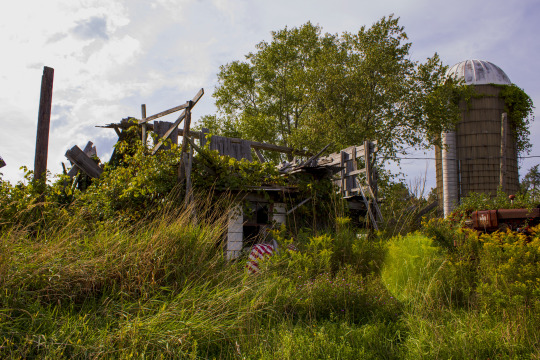
#travel#ny#new york#upstate ny#farm#old farm equipment#farm equipment#abandoned#photography#canon#canon dslr#canon photography#canonphotography#dslr#abandoned places#abandoned house#abandoned barn#abandoned landscape#abandoned ny#nature takes over#Nature reclaims#outdoors#uberex#uberx#uberex photography#uberexphotography#abandoned photography
31 notes
·
View notes
Text

#tractor#traktor#usdm#farm#equipment#farm equipment#old tractor#old traktor#old#classic#classic tractor#classic traktor#vintage#vintage tractor#vintage traktor#old farm equipment#classic farm equipment#vintage farm equipment#western#farmer#vehicle#old vehicle#classic vehicle#west#cool#international#international tractor#international traktor#red#red tractor
2 notes
·
View notes
Text
Exhausted
I am so very tired right now, and in a lot of pain.
It was a very good day, though!
One of my goals for the day was to work on the donated cat shelter, which I did get to work on a little bit!
Before I got started, I received a message from my SIL. They, and the guy with the triple axle trailer they hired, were on their way!
I’ll cover the shelter progress, first.
The very first thing I did…
0 notes
Text
lundi
Breathe life into things and money.
The value of things and money is revealed when they are utilized as material to express yourself. Express your full Makoto (sincere effort) when using them (2014.20)
Loved this creative way of showcasing what was.. Touring along a dusty country road, where there was a lot lush vegetation, It was a refreshing sight to find an old barn that was being used as a…
0 notes
Text

was anyone going to tell me there was a postgame for ranking up to tamer legend where you fight against julia and glare from dawn/dusk or was i just supposed to find out a year after i beat the main game from someone else's screenshot and suffer through a whole lot of grinding and farm quests to get there
#digimon#digimon story lost evolution#okay when i beat the game last year i came away thinking it was an enjoyable game#definitely improved on a lot of dawn/dusk's issues though i really didn't like the plate cleaning mechanic#i still think it's enjoyable but damn the postgame stuff really wanted to make me reconsider my opinion#look i beat dawn legitimately. like i went all the way to the legend tamer tournament and cleared it#i spent a long time grinding in that game but by the end of it my digimon were capable of clearing everything#lost evolution is more forgiving when it comes to the main story but the postgame...#the superbosses in the endgame areas will rip you in half if you haven't grinded out your ass AND gotten strong equips#and in order to access the legend tamer tournament you need to have 127000 tamer points#for reference i finished the game with like. 80000#lopmon cleaning plates for you gives ~100 if you have it 100% already and quests give ~2k on average#and guess what? most of the quests are actually farm quests so you have to get specific digimon with specific personalities for them#and the personalities are randomized so if you create or evolve the digimon and it doesn't have the right personality then lol rip#what was with old digimon game developers and having absolutely no respect for the player's time
6 notes
·
View notes
Text
Postcards from Snagglepuss (Minnesota State Fair edition)
And you thought Machinery Hill was fascinating ...
Ahhh, yes, Machinery Hill ... highlight of the northern part of the Minnesota State Fairgrounds, traditional home for farm tractor and farm equipment manufacturers' exhibits and displays, even if a good part of it had to be levelled to allow the 4-H Building to be constructed in the late 1930's. Only nowadays, only John Deere has any semblance of a tractor display at its facility, with the possibility of just sitting in the cockpit and posing like you were a farmer doing the fields.
Which our company no doubt took advantage of, and then some.
And it turns out that you also have Ford and Chevrolet with their pickups and SUV's on display and preview ... as well as the makers of lawn and garden tractors, riding lawnmowers (including some of the Zero Turning Radius sort), campers even! And boy, were the exhibitors somehow impressed by our having a motorhome, not to mention the 70's van style epitomised by Emmy Lou and Jenny Lee!
But it's just a couple blocks north of Machinery Hill that we want to focus the attention on: No less than the Old Iron Show, along Lee Avenue betwixt Underwood and Cooper Streets on the north side, visible off the SkyGlider even!
"So what exactly is this 'Old Iron Show' about?" asked Square Bear when yours truly and Huckleberry Hound explained our stopping by there as we got off a complimentary trolley shuttle along Underwood Street ... and to answer, such happens to show off some older farm tractors which have managed to be restored, and I mean painstakingly restored! Not just John Deere and Farmall ... brands now manufactured no more, brands like Oliver, Allis-Chalmers, Minneapolis-Moline, Case, Massey-Ferguson, Ford, Cockshutt, White, Co-Op ... and perhaps most impressive, a Mill City "farm engine" of 1906 vintage, of rather substantial size even, designed mainly for larger farms of the time. And who could have been more stunned than--
"Who else--Lippy the Lion?!"
And you could tell where this leonine Tora-san was impressed that a "farm engine" built in 1906 had much the same size as a larger farm tractor such as, say, those in John Deere's 9 Series, but with horsepower comparable to a small utility tractor ... not to mention such skill and care such as are fond of rebuilding farm machinery from the 1930's to the 1970's could take.
Which led us to a rather interesting ice cream stand in the area of the Old Iron Show. Interesting in that the ice cream--old-school, extra-rich vanilla ice cream even!--is made using a restored 1937-vintage John Deere gasoline engine of the sort which served to provide power on the farm, perhaps powering water pumps or serving as a modest light plant. And some say ice cream may not exactly be what it used to be ...
*************
@aquablock68 @ultrakeencollectionbreadfan @railguner34 @hanna-barbera-blog @themineralyoucrave @groovybribri @thebigdingle @archive-archives @stuffaboutminnesota @thylordshipofbutts @indigo-corvus @multi-fandom-girl-451 @funtasticworld @hanna-barbera-land @passionateclown
#hanna barbera#fanfic#fanfiction#minnesota state fair#postcards from snagglepuss#huckleberry hound#hair bear bunch#emmy lou and jenny lee#machinery hill#farm equipment displays#old iron show#restored tractors#hannabarberaforever
2 notes
·
View notes
Text
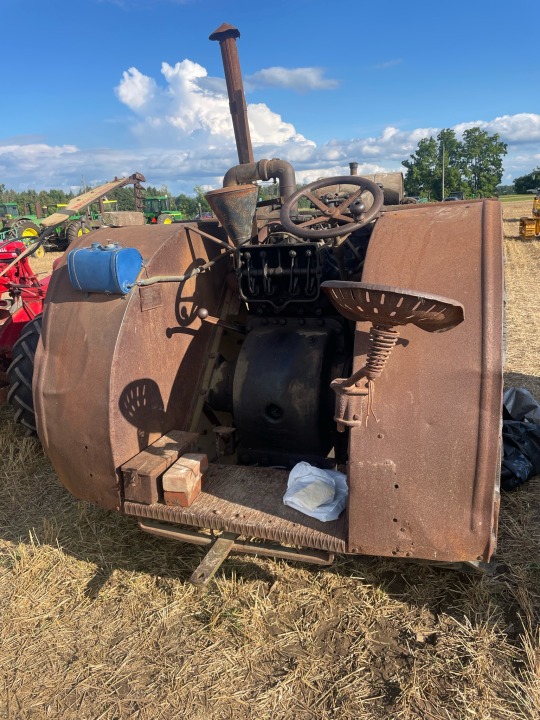
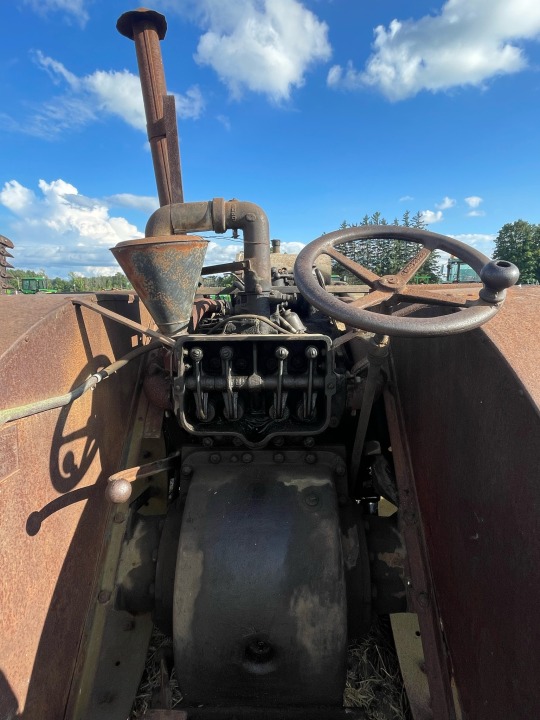
#gas#tractor show#old tractor#farm tractor#rusty#rusty equipment#rusty metal#rusty tractor#feild#sky#out doors#out side#vintage tractor#old
3 notes
·
View notes
Text
one positive in the countryside is that im again able to buy pumpkins the way youre meant to
on a overcast winding afternoon after work, at an unmanned shack on the side of the road, with nothing but and honesty box and the sense you WILL be murdered if you try and steal (not neccessarily by a human)
#getting pumpkins should be vaguely disconcerning#a lone pair of shoes on gravel and grass#wind in the golden orange trees#an amish man on a two horse till gouging pig shit into the field next to you#creaking of old metal farming equipment rattling by with only a brief glance exchanged between the two of you#ppp
6 notes
·
View notes
Text
Transform Your Rusty Old Farm Equipment into Cash in Melbourne
If you’re in Melbourne and have old, rusty farm equipment lying around, it’s time to turn that scrap into cash! Not only will you free up valuable space, but you’ll also contribute to recycling efforts, benefiting both the environment and your wallet. To make the recycling easy and efficient, avoid the common mistakes while scrapping the metals.
Why Recycle Your Old Farm Equipment?
Old farm machinery can take up a lot of space and become an eyesore. Instead of letting it rust away, consider recycling. Recycling metal reduces the need for new raw materials, which in turn conserves natural resources and reduces energy consumption. Plus, you can earn money from selling scrap metal, providing a win-win situation for both you and the planet.
Types of Farm Equipment You Can Recycle
You might be surprised by the variety of farm equipment that can be recycled. Here are some common examples:
Tractors: Whether it’s the entire tractor or just parts like engines and frames, tractors are a great source of recyclable metal.
Plows and Harrows: These often have substantial amounts of steel that can be melted down and repurposed.
Irrigation Systems: Pipes, pumps, and other components can all be recycled.
Harvesting Machinery: Combines, balers, and other harvesting equipment contain valuable metals like steel and aluminum.
The Recycling Process
Collection: Start by gathering all the old farm equipment you no longer need. Make sure to sort them by type for easier processing.
Transportation: Transport the collected items to a nearby recycling facility or arrange for a pickup if the service is available.
Weighing and Valuation: At the recycling facility, your scrap metal will be weighed and evaluated. The value depends on the type and amount of metal you have.
Payment: Once the valuation is done, you’ll receive payment based on the current market rates for scrap metal.
Benefits of Recycling with Us
Competitive Prices: We offer some of the best prices for scrap metal in Melbourne.
Convenience: Our services include easy drop-off and pickup options.
Environmental Impact: By recycling your old equipment, you’re helping to reduce landfill waste and conserve natural resources.
Professional Service: Our team is experienced and dedicated to providing excellent customer service, ensuring a smooth and hassle-free recycling process.
Get Started Today
Turning your old farm equipment into cash is simple and beneficial. Contact us today to learn more about our services and how we can help you recycle your scrap metal efficiently. Don’t let your unused machinery go to waste—transform it into profit and contribute to a sustainable future.
Reach out to us at Cash for Scrap Metals and make the most of your old farm equipment in Melbourne!
#cash for scrap metals#scrap metals#metal scrapping mistakes#old farm equipment to cash#cash for old farm equipment
0 notes
Text
Some creatures for y'all since I went to my grandparents house over the past weekend and got to see 'em.






And a bonus Nebby since she likes to climb into my bag and get fur on my clean clothes

#expect some more pictures of the wagons and other machinery because they've got a lot of old farming equipment that I think is really cool#if it weren't for all of the politics around that area I'd love to live there#it's genuinely so peaceful#I also put their names in the image description if you want to know them by the way#Twilight's the oldest (I think she's around 7-9 now?) and Prim and Bilbo are the youngest (a little over a year or two)#not pictured is Finn who's a fat lil bitch and will act all cuddly until you go to pet him and then he bites#meso's musings
0 notes
Text
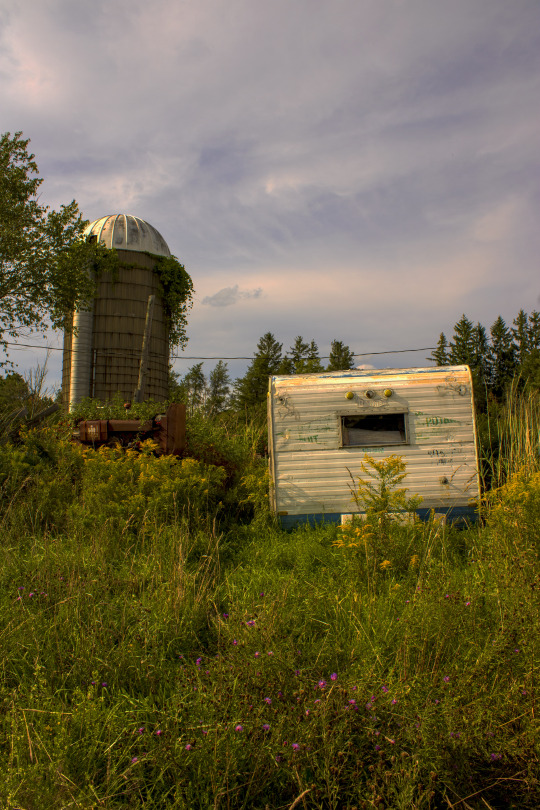
#travel#ny#new york#upstate ny#farm#old farm equipment#farm equipment#abandoned#photography#canon#canon dslr#canon photography#canonphotography#dslr#abandoned places#abandoned house#abandoned barn#abandoned landscape#abandoned ny#nature takes over#Nature reclaims#outdoors#uberex#uberx#uberex photography#uberexphotography#abandoned photography
31 notes
·
View notes
Text

#international#international tractor#international tractors#tractor#tractors#traktor#traktors#usdm#farm tractor#farm tractors#classic#classic tractor#classic tractors#motortrend#old#old tractor#old tractors#aesthetic#farm#equipment#old aesthetic#vehicle#machine#machines#machinery#farm equipment#farm aesthetic#vintage#vintage tractor#vintage tractors
5 notes
·
View notes
Text
Looking for things, and finding some surprises
Looking for things, and finding some surprises
The girls want to shingle the roof of the water bowl shelter. The paint I got was pretty cheap, and it’s so thin and watery, it doesn’t really cover well. The roof of the shelter is already mostly painted white, and the yellow just can’t go over it well.
We’ve been using some leftover shingles like what is on our roof now for replacing shingles that have blown off. We still have an unopened…

View On WordPress
0 notes
Text

Tractor at rest
#lomo#lomo lubitel 166u#lubitel 166u#film photography#analog#staybrokeshootfilm#filmisnotdead#120 film#womenwhoshootfilm#kodak#portra 400#expired film#tractor#old tractor#farm equipment
1 note
·
View note
Text
Weapon material domains being limited to specific days is honestly the dumbest design choice I've ever seen.
#I don't know why talent domains feels slightly less bad#Maybe because equipment is something I might wanna experiment with on the fly?#LET ME GET THE MATS I NEED FOR MY SOLAR PEARL#I WANNA FINISH MY WANDERER BEFORE ZHONGLI ARRIVES#I wish I'd thought to get Solar Pearl yesterday WHEN THE DAMN DOMAIN WAS AVAILABLE#Now I've gotta wait for Sunday#I don't like pre-farming for a new character before finishing an old one#But I guess tomorrow is Bully a Geo Cube day#Genshin Impact
0 notes
Text
Greenwashing set Canada on fire
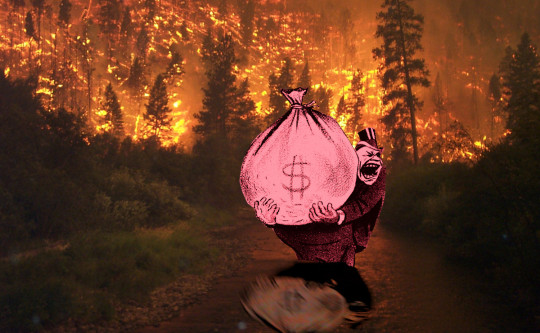
On September 22, I'm (virtually) presenting at the DIG Festival in Modena, Italy. On September 27, I'll be at Chevalier's Books in Los Angeles with Brian Merchant for a joint launch for my new book The Internet Con and his new book, Blood in the Machine.

As a teenager growing up in Ontario, I always envied the kids who spent their summers tree planting; they'd come back from the bush in September, insect-chewed and leathery, with new muscle, incredible stories, thousands of dollars, and a glow imparted by the knowledge that they'd made a new forest with their own blistered hands.
I was too unathletic to follow them into the bush, but I spent my summers doing my bit, ringing doorbells for Greenpeace to get my neighbours fired up about the Canadian pulp-and-paper industry, which wasn't merely clear-cutting our old-growth forests – it was also poisoning the Great Lakes system with PCBs, threatening us all.
At the time, I thought of tree-planting as a small victory – sure, our homegrown, rapacious, extractive industry was able to pollute with impunity, but at least the government had reined them in on forests, forcing them to pay my pals to spend their summers replacing the forests they'd fed into their mills.
I was wrong. Last summer's Canadian wildfires blanketed the whole east coast and midwest in choking smoke as millions of trees burned and millions of tons of CO2 were sent into the atmosphere. Those wildfires weren't just an effect of the climate emergency: they were made far worse by all those trees planted by my pals in the eighties and nineties.
Writing in the New York Times, novelist Claire Cameron describes her own teen years working in the bush, planting row after row of black spruces, precisely spaced at six-foot intervals:
https://www.nytimes.com/2023/09/15/opinion/wildfires-treeplanting-timebomb.html
Cameron's summer job was funded by the logging industry, whose self-pegulated, self-assigned "penalty" for clearcutting diverse forests of spruce, pine and aspen was to pay teenagers to create a tree farm, at nine cents per sapling (minus camp costs).
Black spruces are made to burn, filled with flammable sap and equipped with resin-filled cones that rely on fire, only opening and dropping seeds when they're heated. They're so flammable that firefighters call them "gas on a stick."
Cameron and her friends planted under brutal conditions: working long hours in blowlamp heat and dripping wet bulb humidity, amidst clouds of stinging insects, fingers blistered and muscles aching. But when they hit rock bottom and were ready to quit, they'd encourage one another with a rallying cry: "Let's go make a forest!"
Planting neat rows of black spruces was great for the logging industry: the even spacing guaranteed that when the trees matured, they could be easily reaped, with ample space between each near-identical tree for massive shears to operate. But that same monocropped, evenly spaced "forest" was also optimized to burn.
It burned.
The climate emergency's frequent droughts turn black spruces into "something closer to a blowtorch." The "pines in lines" approach to reforesting was an act of sabotage, not remediation. Black spruces are thirsty, and they absorb the water that moss needs to thrive, producing "kindling in the place of fire retardant."
Cameron's column concludes with this heartbreaking line: "Now when I think of that summer, I don’t think that I was planting trees at all. I was planting thousands of blowtorches a day."
The logging industry committed a triple crime. First, they stole our old-growth forests. Next, they (literally) planted a time-bomb across Ontario's north. Finally, they stole the idealism of people who genuinely cared about the environment. They taught a generation that resistance is futile, that anything you do to make a better future is a scam, and you're a sucker for falling for it. They planted nihilism with every tree.
That scam never ended. Today, we're sold carbon offsets, a modern Papal indulgence. We are told that if we pay the finance sector, they can absolve us for our climate sins. Carbon offsets are a scam, a market for lemons. The "offset" you buy might be a generated by a fake charity like the Nature Conservancy, who use well-intentioned donations to buy up wildlife reserves that can't be logged, which are then converted into carbon credits by promising not to log them:
https://pluralistic.net/2020/12/12/fairy-use-tale/#greenwashing
The credit-card company that promises to plant trees every time you use your card? They combine false promises, deceptive advertising, and legal threats against critics to convince you that you're saving the planet by shopping:
https://pluralistic.net/2021/11/17/do-well-do-good-do-nothing/#greenwashing
The carbon offset world is full of scams. The carbon offset that made the thing you bought into a "net zero" product? It might be a forest that already burned:
https://pluralistic.net/2022/03/11/a-market-for-flaming-lemons/#money-for-nothing
The only reason we have carbon offsets is that market cultists have spent forty years convincing us that actual regulation is impossible. In the neoliberal learned helplessness mind-palace, there's no way to simply say, "You may not log old-growth forests." Rather, we have to say, "We will 'align your incentives' by making you replace those forests."
The Climate Ad Project's "Murder Offsets" video deftly punctures this bubble. In it, a detective points his finger at the man who committed the locked-room murder in the isolated mansion. The murderer cheerfully admits that he did it, but produces a "murder offset," which allowed him to pay someone else not to commit a murder, using market-based price-discovery mechanisms to put a dollar-figure on the true worth of a murder, which he duly paid, making his kill absolutely fine:
https://pluralistic.net/2021/04/14/for-sale-green-indulgences/#killer-analogy
What's the alternative to murder offsets/carbon credits? We could ask our expert regulators to decide which carbon intensive activities are necessary and which ones aren't, and ban the unnecessary ones. We could ask those regulators to devise remediation programs that actually work. After all, there are plenty of forests that have already been clearcut, plenty that have burned. It would be nice to know how we can plant new forests there that aren't "thousands of blowtorches."
If that sounds implausible to you, then you've gotten trapped in the neoliberal mind-palace.
The term "regulatory capture" was popularized by far-right Chicago School economists who were promoting "public choice theory." In their telling, regulatory capture is inevitable, because companies will spend whatever it takes to get the government to pass laws making what they do legal, and making competing with them into a crime:
https://pluralistic.net/2022/06/13/public-choice/#ajit-pai-still-terrible
This is true, as far as it goes. Capitalists hate capitalism, and if an "entrepreneur" can make it illegal to compete with him, he will. But while this is a reasonable starting-point, the place that Public Choice Theory weirdos get to next is bonkers. They say that since corporations will always seek to capture their regulators, we should abolish regulators.
They say that it's impossible for good regulations to exist, and therefore the only regulation that is even possible is to let businesses do whatever they want and wait for the invisible hand to sweep away the bad companies. Rather than creating hand-washing rules for restaurant kitchens, we should let restaurateurs decide whether it's economically rational to make us shit ourselves to death. The ones that choose poorly will get bad online reviews and people will "vote with their dollars" for the good restaurants.
And if the online review site decides to sell "reputation management" to restaurants that get bad reviews? Well, soon the public will learn that the review site can't be trusted and they'll take their business elsewhere. No regulation needed! Unleash the innovators! Set the job-creators free!
This is the Ur-nihilism from which all the other nihilism springs. It contends that the regulations we have – the ones that keep our buildings from falling down on our heads, that keep our groceries from poisoning us, that keep our cars from exploding on impact – are either illusory, or perhaps the forgotten art of a lost civilization. Making good regulations is like embalming Pharaohs, something the ancients practiced in mist-shrouded, unrecoverable antiquity – and that may not have happened at all.
Regulation is corruptible, but it need not be corrupt. Regulation, like science, is a process of neutrally adjudicated, adversarial peer-review. In a robust regulatory process, multiple parties respond to a fact-intensive question – "what alloys and other properties make a reinforced steel joist structurally sound?" – with a mix of robust evidence and self-serving bullshit and then proceed to sort the two by pantsing each other, pointing out one another's lies.
The regulator, an independent expert with no conflicts of interest, sorts through the claims and counterclaims and makes a rule, showing their workings and leaving the door open to revisiting the rule based on new evidence or challenges to the evidence presented.
But when an industry becomes concentrated, it becomes unregulatable. 100 small and medium-sized companies will squabble. They'll struggle to come up with a common lie. There will always be defectors in their midst. Their conduct will be legible to external experts, who will be able to spot the self-serving BS.
But let that industry dwindle to a handful of giant companies, let them shrink to a number that will fit around a boardroom table, and they will sit down at a table and agree on a cozy arrangement that fucks us all over to their benefit. They will become so inbred that the only people who understand how they work will be their own insiders, and so top regulators will be drawn from their own number and be hopelessly conflicted.
When the corporate sector takes over, regulatory capture is inevitable. But corporate takeover isn't inevitable. We can – and have, and will again – fight corporate power, with antitrust law, with unions, and with consumer rights groups. Knowing things is possible. It simply requires that we keep the entities that profit by our confusion poor and thus weak.
The thing is, corporations don't always lie about regulations. Take the fight over working encryption, which – once again – the UK government is trying to ban:
https://www.theguardian.com/technology/2023/feb/24/signal-app-warns-it-will-quit-uk-if-law-weakens-end-to-end-encryption
Advocates for criminalising working encryption insist that the claims that this is impossible are the same kind of self-serving nonsense as claims that banning clearcutting of old-growth forests is impossible:
https://twitter.com/JimBethell/status/1699339739042599276
They say that when technologists say, "We can't make an encryption system that keeps bad guys out but lets good guys in," that they are being lazy and unimaginative. "I have faith in you geeks," they said. "Go nerd harder! You'll figure it out."
Google and Apple and Meta say that selectively breakable encryption is impossible. But they also claim that a bunch of eminently possible things are impossible. Apple claims that it's impossible to have a secure device where you get to decide which software you want to use and where publishers aren't deprive of 30 cents on every dollar you spend. Google says it's impossible to search the web without being comprehensively, nonconsensually spied upon from asshole to appetite. Meta insists that it's impossible to have digital social relationship without having your friendships surveilled and commodified.
While they're not lying about encryption, they are lying about these other things, and sorting out the lies from the truth is the job of regulators, but that job is nearly impossible thanks to the fact that everyone who runs a large online service tells the same lies – and the regulators themselves are alumni of the industry's upper eschelons.
Logging companies know a lot about forests. When we ask, "What is the best way to remediate our forests," the companies may well have useful things to say. But those useful things will be mixed with actively harmful lies. The carefully cultivated incompetence of our regulators means that they can't tell the difference.
Conspiratorialism is characterized as a problem of what people believe, but the true roots of conspiracy belief isn't what we believe, it's how we decide what to believe. It's not beliefs, it's epistemology.
Because most of us aren't qualified to sort good reforesting programs from bad ones. And even if we are, we're probably not also well-versed enough in cryptography to sort credible claims about encryption from wishful thinking. And even if we're capable of making that determination, we're not experts in food hygiene or structural engineering.
Daily life in the 21st century means resolving a thousand life-or-death technical questions every day. Our regulators – corrupted by literally out-of-control corporations – are no longer reliable sources of ground truth on these questions. The resulting epistemological chaos is a cancer that gnaws away at our resolve to do anything about it. It is a festering pool where nihilism outbreaks are incubated.
The liberal response to conspiratorialism is mockery. In her new book Doppelganger, Naomi Klein tells of how right-wing surveillance fearmongering about QR-code "vaccine passports" was dismissed with a glib, "Wait until they hear about cellphones!"
https://pluralistic.net/2023/09/05/not-that-naomi/#if-the-naomi-be-klein-youre-doing-just-fine
But as Klein points out, it's not good that our cellphones invade our privacy in the way that right-wing conspiracists thought that vaccine passports might. The nihilism of liberalism – which insists that things can't be changed except through market "solutions" – leads us to despair.
By contrast, leftism – a muscular belief in democratic, publicly run planning and action – offers a tonic to nihilism. We don't have to let logging companies decide whether a forest can be cut, or what should be planted when it is. We can have nice things. The art of finding out what's true or prudent didn't die with the Reagan Revolution (or the discount Canadian version, the Mulroney Malaise). The truth is knowable. Doing stuff is possible. Things don't have to be on fire.



If you'd like an essay-formatted version of this post to read or share, here's a link to it on pluralistic.net, my surveillance-free, ad-free, tracker-free blog:
https://pluralistic.net/2023/09/16/murder-offsets/#pulped-and-papered
#pluralistic#logging#pulp and paper#ontario#greenwashing#a market for lemons#incentives matter#capitalism#late-stage capitalism#climate emergency#wildfires#canada#canpoli#ontpoli#carbon offsets#self-regulation#nerd harder#epistemological chaos#regulatory capture#Claire Cameron#pines in lines
3K notes
·
View notes